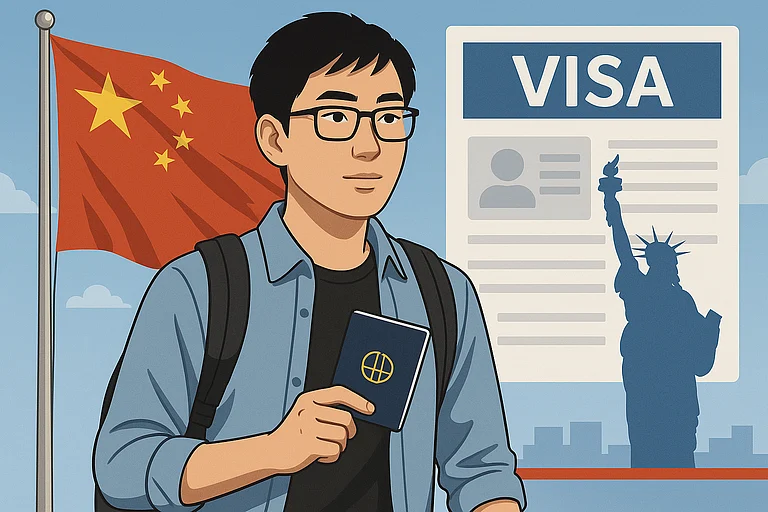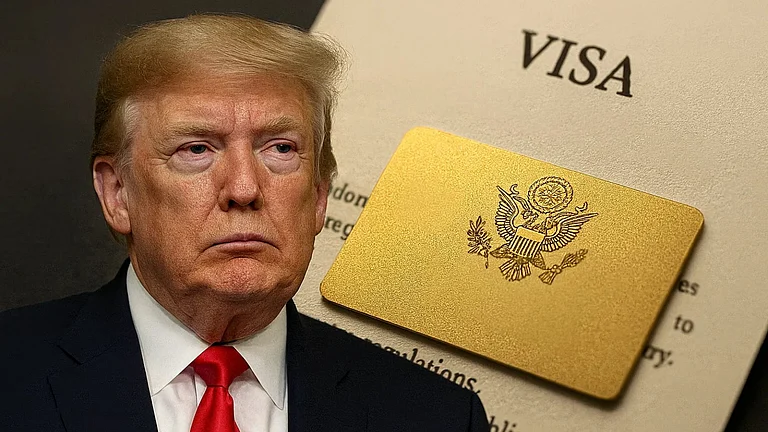
Summary of this article
H-1B visa has been a cornerstone of the US tech workforce for years. It was created under the 1990 Immigration Act to allow American companies to hire skilled foreign workers in roles that are difficult to fill locally, particularly in software engineering and other computer-related fields. The recent hike by the Trump administration, from the existing $215 application fee to a staggering $100,000, has out many Indian workers and companies under stress. Amid this development, San Francisco-based AI startup has issued an open call, inviting H-1B workers to apply for roles at the tech firm.
The sudden $100,000 H-1B visa fee announced by the Trump administration last week has rattled employers, students and workers alike, with uncertainty spreading across US tech corridors and Indian IT hubs. While the White House has rushed to clarify that the charge is a one-time fee and will not hit existing visa holders, the shock has already sent ripple effects through the industry.
Amid the confusion, one San Francisco-based AI startup has taken a very different approach.
Metaview's co-founder and CTO, Shahriar Tajbakhsh, issued an open call on LinkedIn inviting H-1B workers to apply for roles at his company, with a sharp message to their current employers: "If your company doesn't value you enough to pay the $100k, check out to see if any of our roles might be a fit."
The post quickly struck a chord. Tajbakhsh went further, promising that every application would receive a yes-or-no hiring decision within 24 hours, an unusually fast turnaround in today's drawn-out hiring cycles. The only questions from candidates are for four to five hours of interview time.
"Many companies are trying to lure H-1B holders abroad," he wrote. "But those efforts seem a bit desperate. Instead, come work at Metaview, right here in San Francisco, where $100k is a rounding error compared to the value each team member creates."
That framing, calling the fee a "rounding error", lit up tech circles. Some investors chimed in, noting that $100,000 was less than the cost of running high-powered Nvidia AI chips for a week.
Others called it a clever way to flip a political headache into a recruitment tool, while one comment described it as "a great screenshot for salary negotiations."
What is an H-1B Visa?
For years, the H-1B visa has been a cornerstone of the US tech workforce. Created under the 1990 Immigration Act, the program allows American companies to hire skilled foreign workers in roles that are difficult to fill locally, particularly in software engineering and other computer-related fields.
Around 700,000 people are currently on H-1B visas in the US, and nearly three-quarters of new approvals last year went to Indian applicants, according to Pew Research Center.
The Trump administration's abrupt hike, from the existing $215 application fee to a staggering $100,000, took effect with less than 24 hours' notice. Officials insisted the change would not apply to current visa holders or those re-entering the country from travel, but immigration lawyers still advised caution.
"There's still some folks out there recommending to their H-1B employees that they not travel right now until it's a little clearer," Leon Rodriguez, a former director of US Citizenship and Immigration Services, told clients.
Critics of the program argue that H-1B visas depress wages and displace American workers, particularly when staffing firms bring in employees from India at lower pay. The White House leaned into that argument while unveiling the fee, saying US companies had become too dependent on "artificially low labour costs incentivised by the program."
Still, for companies like Metaview, and for the thousands of workers caught in limbo, the question is less about politics and more about trust. By publicly offering to shoulder the cost, Tajbakhsh has recast the fee not just as a financial burden, but as a test of whether employers truly value their foreign talent.
With larger firms scrambling for clarity and weighing legal challenges, this bold step from a relatively small startup has managed to stand out and go viral.
According to some reports, tech giants like Meta and Microsoft, including e-commerce platform Amazon, had asked all their H-1B visa holders not to leave the US, at least for 14 days, shortly after the announcement created havoc among employees.
Many companies across the I-T spectrum have yet to respond to this H-1B development.
















